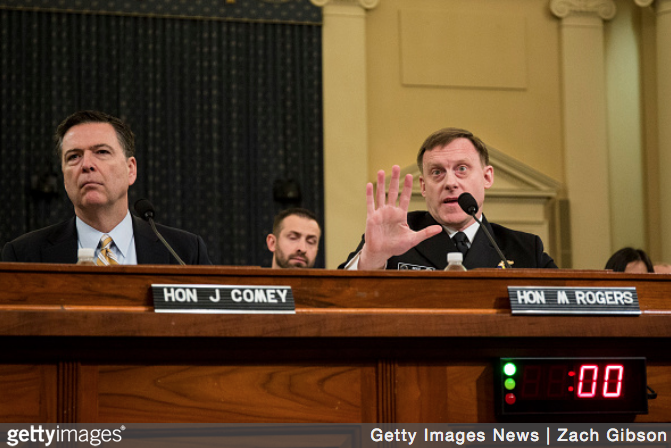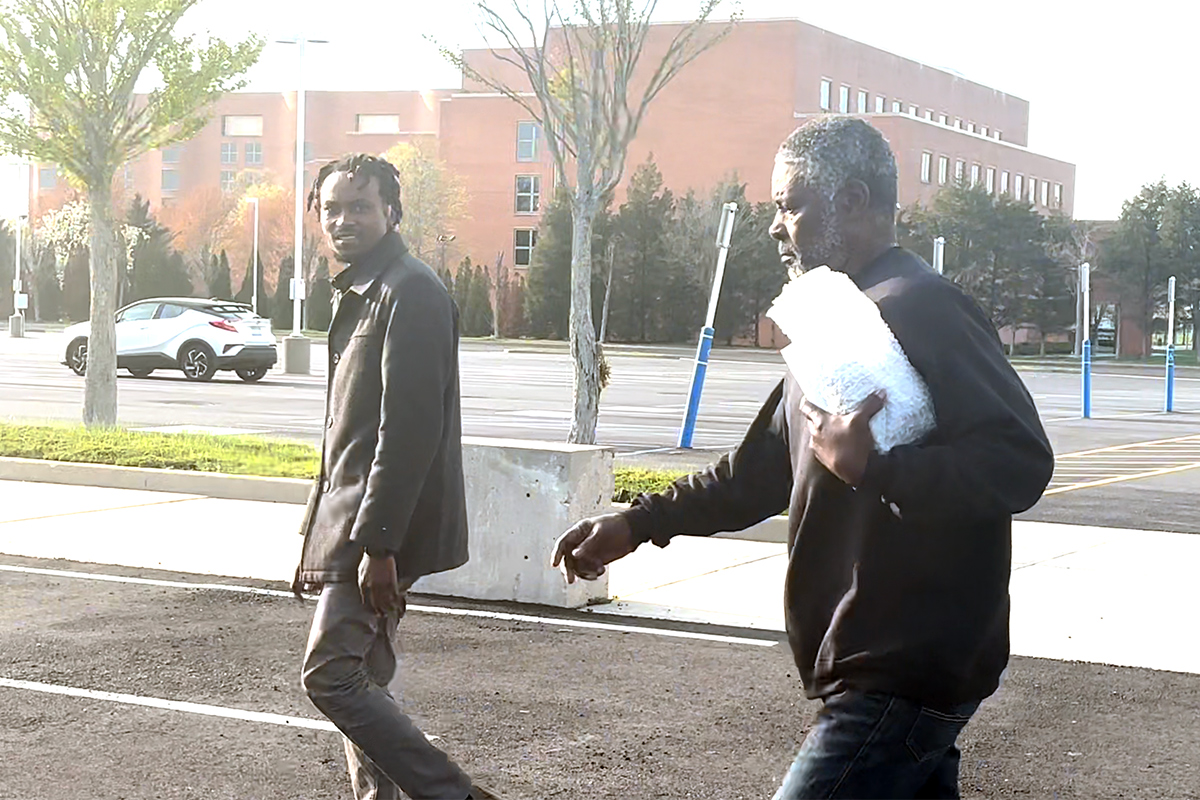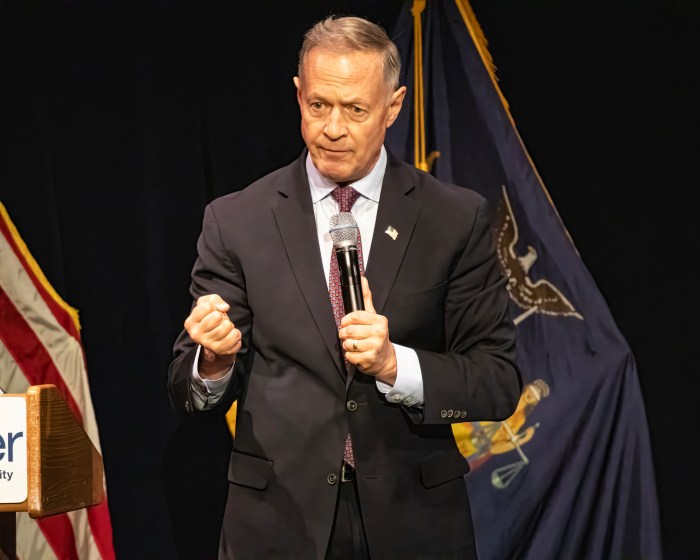FBI Director James Comey on Monday acknowledged an investigation into possible links between President Donald Trump’s election campaign and the Russian government amid a larger probe into Russian interference while he also quashed claims that President Obama had directed surveillance at Trump or Trump Tower in Manhattan.
Appearing before members of the House Intelligence Committee, Comey said it’s atypical for the agency to comment on ongoing investigations aside from “unusual circumstances where it is in the public interest, it may be appropriate to do so…this is one of those circumstances.”
Comey, who had drawn the ire of Democrats for his comments about Hillary Clinton’s email investigation during the presidential election, said the FBI has been investigating the Russian government’s alleged efforts to interfere in the election since July, along with possible links of any individuals associated with the Trump campaign and Russia. He characterized Russia’s efforts as “loud” and warned they’d likely try to hack elections in the future.
Under questioning from Rep. Adam Schiff (D-Calif.) about Trump’s charge that his predecessor wiretapped Trump Tower, Comey refuted the current president’s assertions.
“I have no information that supports those tweets, and we have looked carefully inside the FBI,” Comey said, adding that the Department of Justice had arrived at the same conclusion.
Terrible! Just found out that Obama had my “wires tapped” in Trump Tower just before the victory. Nothing found. This is McCarthyism!
— Donald J. Trump (@realDonaldTrump) March 4, 2017
That a sitting FBI director was called to address unfounded claims from a president that seemingly materialized out of nowhere was highly unusual.
The remarks set off a firestorm and led to similarly unfounded allegations of the Obama administration enlisting GCHQ, a British intelligence agency, to spy on Trump, which NSA Director Admiral Mike Rogers testified was unsubstantiated.
“I have seen nothing on the NSA side that we engaged in any such activity,” Rogers said. The British agency called Trump’s claim “utterly ridiculous.”
The assertion that British intelligence was involved in spying operations on behalf of the United States first appeared on Fox News, which White House spokesman Sean Spicer repeated last week during a press briefing. Spicer’s remarks set off a political squabble that ended with the White House agreeing not to reference the claim again.
The hearing comes as the president continues to face questions about any ties his campaign had to Russia, which intelligence agencies believe was involved in the hack of the Democratic National Committee during the presidential election. The leaks included emails from Clinton’s campaign chair and seemed to bolster public mistrust of Clinton, which dogged her throughout the campaign.
Comey’s acknowledgment of an ongoing investigation into the Trump campaign and Russia ensures that the controversy will continue to hang over the administration just as it hoped to concentrate on its drastic health care overhaul and its pro-defense budget proposal. Comey could not offer a timetable as to when the probe will be completed. He also declined repeatedly to go into specifics or to discuss particular individuals.
He did, however, provide insight into how authorities obtain a so-called “FISA warrant” for electronic surveillance.
“It’s a rigorous, rigorous process,” said Comey, adding that authorities must show probable cause and a federal judge must sign off.
No president can unilaterally order electronic eavesdropping of any individual, the FBI chief testified.
Monday’s hearing marked the first occasion when Comey discussed the Russian investigation in public. At one point, he noted that Russian President Vladimir Putin held such disdain for Clinton that he wanted her opponent to win, comparing it to detractors of the New England Patriots, the NFL team which Comey said he loathes, rooting for the other side.
“They wanted to hurt our democracy, hurt her and help him,” Comey testified, adding that one of Russia’s goals is to undermine American democracy.
In his press briefing Monday, Spicer did not back away from Trump’s claims. He said reporters were taking the president too literally when he referenced wiretapping. As for the FBI’s investigation into Russian meddling and possible links between Trump’s campaign and the Russian government, Spicer said no evidence was presented at the hearing to indicate any direct ties.
“Investigating it and having proof of it are two different things,” Spicer said.
While Democrats on the committee sought to undercut Trump’s remarks about Obama, Republicans tried to highlight the grave nature of the leaks regarding classified information and safeguards under FISA meant to protect identities of U.S. citizens. Specifically, some members were referring to Trump’s short-lived National Security Adviser Michael Flynn, who resigned after just a few weeks in office when phone conversations he had with the Russian ambassador to the United States came to light. The administration said Flynn’s ouster was related to his lying about the phone call to Vice President Mike Pence.
“I thought it was against the law to disseminate classified information, is it?” asked Rep. Trey Gowdy (R-SC).
“It’s a serious crime,” Comey responded.
The FBI director has been the focus of criticism from Democrats over his handling of the Clinton e-mail scandal. The first round of critiques began in July when Comey slammed Clinton in a letter for her being “extremely careless” while clearing her of wrongdoing. Then, days before November’s presidential election, Comey said the Clinton investigation was reopened, only to yet again reveal that there was nothing wrong afoot.
In his opening remarks Monday in Congress, Comey cautioned the public not to make comparisons between current and past investigations, but he did so without referencing Clinton.
































